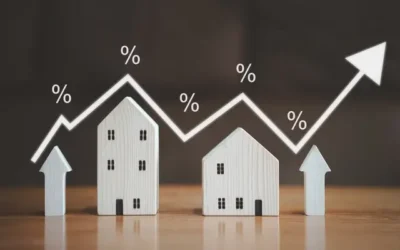Recently, the Federal Reserve made a decision to cut interest rates, which has left many wondering:
“Does this mean mortgage rates will drop too?”
The truth is, while the Fed’s actions can affect interest rates in general, it doesn’t always mean that home loan rates will go down immediately.
Here’s a simple breakdown of what’s happening, what the Federal Funds Rate really is, and how it impacts your mortgage.
What is the Federal Funds Rate
The Federal Funds Rate is basically the interest rate that banks charge each other when they borrow money overnight. The Federal Reserve (the Fed) sets this rate to help control the economy.
When the Fed lowers the rate, it’s trying to make borrowing cheaper to encourage people to spend and invest.
When they raise the rate, it’s to cool things off if the economy is growing too fast.
How Does the Fed's Rate Impact the Economy?
Even though the Federal Funds Rate is about banks lending to each other, it has a big impact on the economy. This rate affects the cost of all kinds of loans, like car loans, credit cards, and home loans.
When the Fed cuts rates, banks have cheaper access to money, so they might lower interest rates for you, too. But mortgage rates don't always follow the Fed's moves in a direct way.
Does a Fed Rate Cut Mean Lower Mortgage Rates?
A lot of people assume that when the Fed cuts rates, it automatically means mortgage rates will drop, too. But that’s not exactly the case. Here’s why:
Mortgage Rates Follow Bonds, Not the Fed:
Mortgage rates are more closely tied to bond prices (specifically the 10-year Treasury bond). When investors buy and sell bonds, it affects long-term interest rates, including mortgage rates.
So, even if the Fed lowers short-term rates, it doesn’t always mean mortgage rates will fall, especially if bond investors are worried about inflation or other economic factors.
Inflation Is a Big Deal: If the economy is growing fast and prices are going up (called inflation), mortgage lenders might raise their rates to protect themselves from losing money. So, even if the Fed cuts rates, inflation fears can still push mortgage rates higher.
The Fed’s Goal Is to Help the Economy, Not Set Mortgage Rates
The Federal Reserve uses rate cuts to stabilize the economy by making borrowing cheaper for everyone. But they don't directly control what you pay for a mortgage. It’s more about creating the right conditions for economic growth, which indirectly impacts your mortgage rate.
How Does a Fed Rate Cut Affect Homebuyers and Home Loans?
If you’re looking to buy a home or refinance your mortgage, here's what the Fed rate cut means for you:
- Short-Term Loans: If you have a variable-rate loan (like an adjustable-rate mortgage or ARM), you may see your rate go down right away because those types of loans are tied to the Federal Funds Rate.
- Fixed-Rate Mortgages: If you’re refinancing into a fixed-rate mortgage, the Fed rate cut won’t necessarily cause your mortgage rate to drop. This is because fixed rates are influenced more by the bond market and inflation than by the Fed's actions.
Inflation and the Economy Matter More
Even if the Fed cuts rates, the state of the economy (like inflation or global economic conditions) will play a much bigger role in determining your mortgage rate.
Refinancing
A Fed rate cut could make it more tempting to refinance if you have an adjustable-rate mortgage (ARM).
But if you want to refinance into a fixed rate, it’s important to keep an eye on what’s going on in the bond market and inflation, as these factors have a bigger impact on your long-term mortgage rate.
Thee Bottom Line:
Rate Cuts Don’t Always Mean Lower Mortgage Rates
The key takeaway is that while a Fed interest rate cut can make it easier to borrow money in the economy, it doesn’t always lead to lower mortgage rates. Mortgage rates are affected by a variety of factors, and they don’t always follow the Fed’s moves in a straight line.
So, if you're thinking about buying a house or refinancing, it's important to pay attention to the bigger economic picture, not just the Fed. Always talk to a mortgage professional who can help you understand how these changes affect your loan and your payments.
For more insights on mortgage rates, home buying tips, and the latest real estate news, visit us at ValoanNetwork.com.
Stay informed and get the best deal for your home loan!

The VA Loan Network Editorial Team is comprised of dedicated mortgage specialists and financial writers committed to providing veterans and service members with accurate, up-to-date information on VA loan benefits, eligibility, and the home-buying process.








